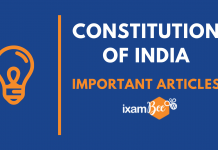The Securities and Exchange Board of India (SEBI) is essential in regulating and developing India’s securities market. Established in 1988 and granted statutory powers in 1992, SEBI’s primary aim is to protect investors’ interests while maintaining market integrity. This article delves into SEBI’s various roles and policies that contribute to secure investments.
The SEBI Grade A recruitment drive 2024 is going on these days and this is the right time for you to get in depth in knowing more about the SEBI and its functions. In this blog we are going to talk about how SEBI ensures the security of its investors. How the hard earned money of people are safe while investing in companies listed under SEBI.
Thus, we recommend you to read this blog till the end to get the best out of it.

Key Objectives and Mandates of SEBI
SEBI’s objectives are comprehensive, targeting various facets of the securities market:
- Investor Protection: Safeguarding investors from fraudulent practices and market manipulations.
- Market Transparency: Implementing regulations that promote fairness and transparency in trading.
- Regulating Intermediaries: Supervising stock exchanges, brokers, mutual funds, and other market participants.
- Market Development: Introducing innovative financial products to facilitate market growth.
Key Policies for Investor Protection
Investor Protection Fund (IPF)
SEBI introduced Investor Protection Fund to compensate investors for financial losses due to broker defaults. This approach makes investors less susceptible to misconduct, and builds confidence in the market.
Disclosure Requirements
Transparency is the cornerstone of SEBI’s regulatory framework. Listed companies must comply with stringent disclosure requirements, including quarterly financial results and annual reports. This rule ensures that investors receive accurate and timely information, allowing them to make informed decisions.
Insider Trading Regulations
SEBI applies strict insider trading rules and prohibits trading securities from accessing non-public, price-related information. Violators face severe penalties, which contributes to market integrity and investor confidence.
Corporate Governance Norms
SEBI’s corporate governance norms ensure that companies operate with integrity and accountability. These include board membership, audit committee and relevant country contact requirements, which will encourage long-term sustainability and investor confidence.
Regulation of Mutual Funds
SEBI regulates mutual funds to ensure transparency and protect the interests of investors. Rules governing fund management, risk management, and investor disclosure help protect retail investors from possible bad schemes.
Impact of SEBI’s Policies on Investors
Enhanced Transparency and Confidence
SEBI’s policies have provided greater market transparency, enabling investors to take informed decisions. This increased transparency has led to increased investor confidence and participation in the stock market.
Reduction in Fraudulent Practices
Strict anti-insider trading laws and strengthened corporate governance standards have reduced the incidence of fraud. Knowing that SEBI actively monitors and punishes offenders gives investors greater confidence in the market.
Financial Loss Protection
The Investor Protection Fund provides a safety net for investors, compensating them in cases of broker defaults. This measure encourages more retail investors to participate in the market.
Regulating Market Intermediaries
SEBI’s oversight ensures that brokers, stock exchanges, and other market participants operate within a regulated framework, preventing malpractices and protecting investor interests.
Facilitating Market Development
By introducing innovative financial products and practices, SEBI has facilitated market growth and diversification, providing investors with a wider range of investment opportunities.
SEBI Grade A: Career Opportunities and Exam
For those looking to build a career with SEBI, the SEBI Grade A exam is a significant opportunity. SEBI Grade A Officers play a crucial role in implementing SEBI’s regulatory policies.
SEBI Grade A Exam
The SEBI Grade A exam is highly competitive, attracting candidates from diverse fields. The exam covers various subjects, including finance, law, and information technology.
Eligibility Criteria
To be eligible for the SEBI Grade A exam, candidates must hold a bachelor’s degree in a relevant field. Specific SEBI Grade A eligibility criteria may vary based on the specialization, such as legal, IT, or Rajbhasha.
Salary and Benefits
SEBI Grade A Officers receive an attractive salary along with numerous benefits, making it a desirable career path for many aspiring professionals.
Conclusion
SEBI’s role in ensuring secure investments is fundamental to the integrity and growth of India’s securities market. Through comprehensive policies and stringent regulations, SEBI protects investors and fosters a transparent and robust financial environment. Aspiring SEBI Grade A Officers have the opportunity to contribute significantly to this mission while enjoying a rewarding career.
By continuously adapting to evolving market dynamics and leveraging technology, SEBI remains committed to safeguarding investor interests and promoting a fair and transparent securities market in India.













![List of Countries with their National Sports [Updated] List of Countries with their National Games](/blog/wp-content/uploads/2020/03/Yes-Bank-Moratorium-Know-In-Detail-6-218x150.png)

